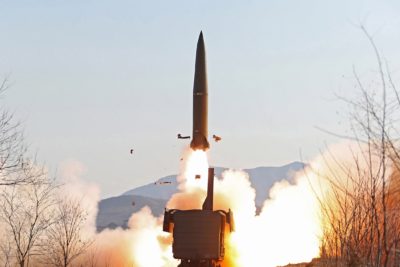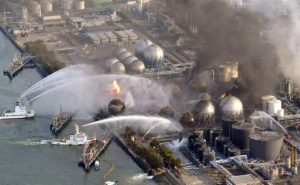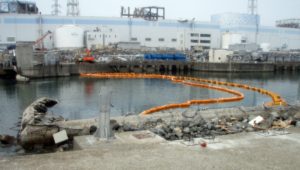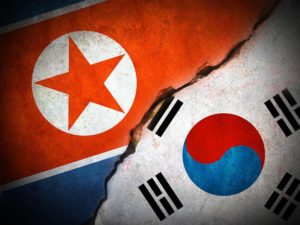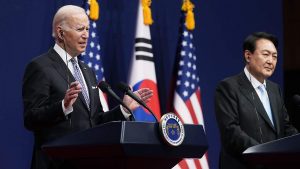On the most recent communication signals exchanged between the PRC and Japan
As the New Eastern Outlook has frequently stated, the communication among the top players in the current stage of the Big World Game is extremely vital, indicating that the game process is ongoing. Regardless of the issues that arise, the participants continue to honor the current agreements and refuse to overturn the table with a “continue the policy by other means” clause. One may assess the current relationships between the main players and the prospects for the future based…
Early escalation?
On July 22, 2023, Chairman of the US Joint Chiefs of Staff (JCS) Gen. Mark Milley informed the Japanese daily Nikkei that “the Korean situation is an area that the United States could ― I’m not saying it will, but ‘could’ ― find itself in a state of war, you know, within a few days, with very little notice.” Milley then described North Korean leader Kim Jong-un as unpredictable, claiming that a North Korean intercontinental ballistic missile may strike the US mainland. Milley’s objective, according to South Korean experts, was undoubtedly to stress Washington’s commitment to maintaining peace and security on the peninsula, but he could have been more careful in his choice of words. According to Park Won-gon, professor in North…
South Korea’s nuclear dreams
South Korean society has now become so consumed by hysteria concerning the threat from North Korea that that even at the highest levels the authorities are too frightened to be able to evaluate the situation soberly. In 2022 polls conducted by the Asan Institute for Policy Studies showed that about 70 percent of citizens support the deployment of nuclear weapons in South Korea in order to deter aggression by Pyongyang. The choice is either to invite the US to host nuclear weapons in their country, or withdrawing from the Nuclear Non-Proliferation Treaty and developing their own weapons. That is the message that politicians from the ruling People’s…
What’s the problem regarding radioactive water discharge from the Fukushima Daiichi Nuclear Power Plant? A delegation of South Korean scientists visits the NPP. Part 2
The disputable situation surrounding the safety of discharging water from the damaged Fukushima Daiichi Nuclear Power Plant, which the author discussed in Part 1, prompted a team of 21 South Korean experts to visit Japan from May 21 to 26 to inspect the plant and the treatment of radioactively contaminated water that Japan plans to begin discharging into the ocean in the near future because the tanks are full. Many Koreans are concerned about this because they believe the waters are still contaminated and will have a negative impact on the environment and health of the population of the area, especially South Korea. A presidential administration official stated that Seoul feels a real inspection of the nuclear disaster by South Korean experts is required…
What’s the problem regarding radioactive water discharge from the Fukushima Daiichi Nuclear Power Plant? Part One. The technical side of the issue
As previously noted, the outrage over Japan’s discharging of over 1 million tons of radioactive wastewater from the Fukushima Daiichi Nuclear Power Plant into the Pacific Ocean (“discharge” for short) continues to persist. For instance, thousands of Koreans rallied in downtown Seoul on May 20, 2023, to protest the discharge. The leader of the main liberal opposition party in Korea, Lee Jae-myung, told the protesters that the national government should not support Japan’s decision to dispose…
A chronicle of the escalation between North and South Korea in late April and May 2023
In this latest in his series of digests on the increasingly tense situation on the Korean peninsula the author presents an overview of the situation up to mid-June 2023. On April 15, in response to Pyongyang’s test of its new solid-fuel ICBM, the Hwaseong-18, the US and South Korea conducted joint air force exercises involving B-52H strategic bombers supported by South Korean F-35A and F-15K and US F-16 fighter jets. On April 16 a North Korean patrol boat crossed…
Anti-prediction on the anticipation regarding the outcome of Yoon Suk-yeol's visit to the United States
A genre the author refers to as “anti-predictions” may be found in his various works. They describe the most dismal developments in the hope that others who read them would approach the situation in a different way. In this vein, the author anxiously anticipates the key results of Yoon Suk-yeol’s visit to the United States. The crucial dates will be April 26-27, when Yoon will deliver a speech at a news conference or gala dinner, the substance and implications of which will almost certainly reshape the regional security architecture. If and when Yoon does…


